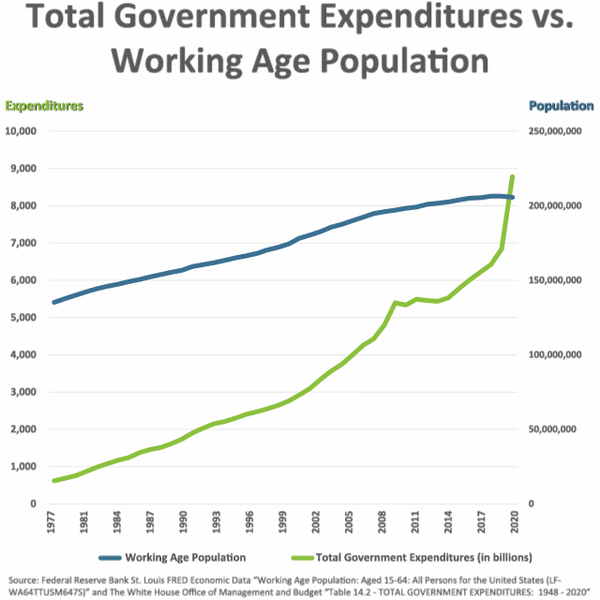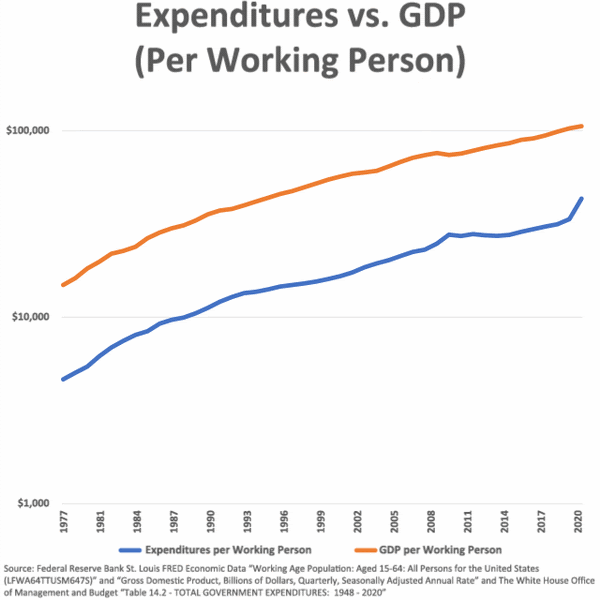Beyond the Soundbites: January 2021 Newsletter Excerpt

Over the years, we have talked about our concerns about heavy deficit spending. We consider this, along with CO2 emissions, among the dumbest experiments in modern history. In both cases, there is inevitably a bad ending. It may be decades into the future, but it’s hard to see a positive long term outcome.
This past month, we read an article bemoaning government spending from a new angle. It evaluated total government expenditures (including state and local spending) and contrasted it with the working population (which is going down).
We thought this was an interesting way to look at it because it:
- Takes all government spending, including state and local, into account
- Seeks to weigh this against the number of people expected to support the spending
Globally, population growth rates are slowing down. The United States is unique among its peers in the world in that we still have good population growth for a developed country. However, our working age population is going down primarily because of aging Baby Boomers.
When you put these into a chart, it can look very alarming as you see the working population stalling out and expenditures escalating upwards:

Our first impression was the same as yours: yikes, this looks bad. Even without the recent expenditure spike (because of COVID stimulus), this chart seems to suggest that there is more and more spending on the shoulders of a shrinking group of people.
We came across this in the context of a “the sky is falling” message, suggesting that the United States was driving off a cliff. When we dug into the numbers to create an “apples for apples” comparison, it told a different story. On a per working person basis, government spending has roughly followed GDP growth. Meaning, we’re making more money and spending more right along with it:

No matter what age you are, your entire life you have heard about reducing government spending. This is not a problem. The problem is heavy deficit spending which will eventually have an unpleasant ending.

